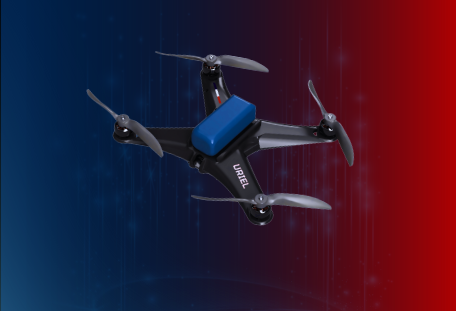In a world marked by unprecedented geopolitical tensions, technological sovereignty has become a central issue for France. In an age of digitalization and robotization, mastery of defense technologies is an essential lever for guaranteeing national security. Among these technologies, drones are playing an increasingly strategic role. Used for reconnaissance, surveillance, intelligence and targeted strikes, they embody a new generation of indispensable military tools.
In this field, major powers such as the USA, China, Israel and Turkey are investing massively and developing drones with advanced capabilities. Against this backdrop, France can no longer afford to remain dependent on foreign technologies , or to lag behind. The development of sovereign UAVs, manufactured and controlled entirely on French territory, has become a vital necessity. It's not just a question of security, autonomy and resilience, but also a powerful lever for industrial innovation.
Redefining technological sovereignty
Technological sovereignty is now a central concept in national strategies. It refers to a country's ability to design, produce and control its own strategic technologies, without depending on foreign players. This sovereignty is all the more crucial in the defense sector, where the stakes are high and the risks of dependence fraught with consequences.
Historically, France has lagged behind its competitors in the development of military UAVs by an estimated 15 years or more. This deficit is due to several factors: late investment, lack of local industrialization of critical components, and limited integration of emerging technologies such as FPV (First-Person View) UAVs.
Today, this situation has profoundly changed. France has launched several ambitious programs to close the gap, including the "Pacte drones aériens de défense" (Defense UAV Pact), a strategic plan aimed at structuring a solid, innovative national industry. This pact brings together manufacturers, research laboratories, the armed forces and the public sector around a common goal: to develop UAVs that are entirely designed, manufactured and maintained in France.
This approach is based on mastery of key technological building blocks : electronic components, flight cards, on-board software and secure communications systems. It's a real innovation effort, designed to ensure that the UAVs used by the French army are sovereign equipment , independent of any outside influence.
What's more, this strategy is part of a broader rationale of digital sovereignty, a notion that is becoming increasingly important as conflicts become increasingly reliant on digital technologies. The ability to protect one's data, information systems and
Critical infrastructures also require complete mastery of drones, which have become veritable digital platforms.
A key tool in modern conflicts
Contemporary conflicts have profoundly transformed the way armies conduct their operations. FPV drones, which offer real-time first-person vision, have become essential tools for armed forces. Their ability to combine maneuverability, speed and precision makes them particularly well suited to reconnaissance, intelligence and combat support missions.
Unlike traditional drones, which are often heavy and expensive, FPV drones are light, inexpensive and easily deployable. They enable soldiers in the field to get an immediate overview of the tactical situation, without directly exposing personnel. This dimension of human risk reduction is a major advantage.
In France, the Army has given concrete expression to this evolution through innovative initiatives. The 17th Artillery Group has set up a "mobile autonomous factory" capable of producing up to 60 FPV UAVs per day, right on the battlefield. This rapid, local production capacity offers invaluable responsiveness, enabling resources to be adapted to operational requirements in the shortest possible time.
In addition, the integration of FPV UAVs into existing systems, such as Gazelle helicopter launches, demonstrates our determination to adapt these new technologies to traditional military doctrines. This technological hybridization makes it possible to take advantage of both the mobility of helicopters and the finesse of UAVs, reinforcing the versatility of French forces.
Finally, FPV drones also have an important strategic dimension in electronic warfare. Their use in stealth operations, harassment or targeting of enemy systems, bears witness to a profound change in the nature of conflicts, where technology is a determining factor.
The challenge of national resilience
Sovereignty over unmanned aerial vehicles is also a question of industrial and national resilience. The Covid-19 pandemic and recent international tensions have highlighted the fragility of global supply chains, particularly for electronic components. Dependence on foreign suppliers in strategic sectors exposes us to the risk of disruption, sanctions or political pressure.
To mitigate these risks, France is betting on the development of its own technological bricks, integrating the design and manufacture of critical electronic components. Innovative companies like Drone Français are at the forefront. They design and produce locally essential components such as flight control boards, electronic engine controllers (ESC) and communication modules.
This industrial autonomy is a major strategic asset, as it guarantees the continuity of military operations in all circumstances. It also secures intellectual property and prevents any form of foreign interference.
Beyond defense, this technological sovereignty feeds innovation in the civilian sector, creating synergies between military industry and the commercial market. The "made in France" label thus becomes a mark of quality and reliability, creating economic and industrial added value.
In a global context marked by instability and intense technological competition, the development of sovereign UAVs is a strategic necessity for France. This sovereignty is a lever for national security, a driver ofindustrial innovation, and a guarantee of resilience in the face of international crises.
Thanks to ambitious programs and the commitment of key players such as Drone FrançaisFrance is catching up and building a robust, independent drone industry. FPV drones, in particular, are a perfect example of this dynamic, combining operational efficiency and technological autonomy.
Complete mastery of these technologies will enable France to preserve its strategic autonomy, strengthen its defense capabilities, and position itself as a major player in the field of military and civilian UAVs.
